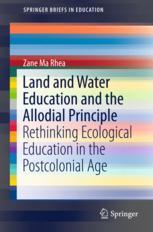

Most ebook files are in PDF format, so you can easily read them using various software such as Foxit Reader or directly on the Google Chrome browser.
Some ebook files are released by publishers in other formats such as .awz, .mobi, .epub, .fb2, etc. You may need to install specific software to read these formats on mobile/PC, such as Calibre.
Please read the tutorial at this link: https://ebookbell.com/faq
We offer FREE conversion to the popular formats you request; however, this may take some time. Therefore, right after payment, please email us, and we will try to provide the service as quickly as possible.
For some exceptional file formats or broken links (if any), please refrain from opening any disputes. Instead, email us first, and we will try to assist within a maximum of 6 hours.
EbookBell Team

0.0
0 reviewsThis book argues that the ancient allodial principle enables a paradigmatic shift in the way specialist educators in environmental, Indigenous, and legal studies; teacher educators; and teachers think about land and water education.
Land and water are basic to human life, and students will need to grapple with matters of sustainability and Indigenous entitlement in their future work. People now living in lands and on waterways that have been colonized, such as Australia, are taught to regard land and water in ways that have been fundamentally shaped by English law. This book introduces ancient as well as more contemporary forms of land and water access and examines the underlying ontological and epistemological enframements that shape the way that ‘land’ and ‘water’ are understood and taught. As peoples of the world grapple with environmental sustainability and Indigenous rights, the author provides a pivotal rejection of the entitlement to ‘abuse’. The book also reasons that educators should employ alod pedagogy to develop their approach to ‘working out’ difficult matters to do with balancing the rights and responsibilities of nations, regions, corporations, communal and individual owners in the access to, use of, and transferability of land and waterways.